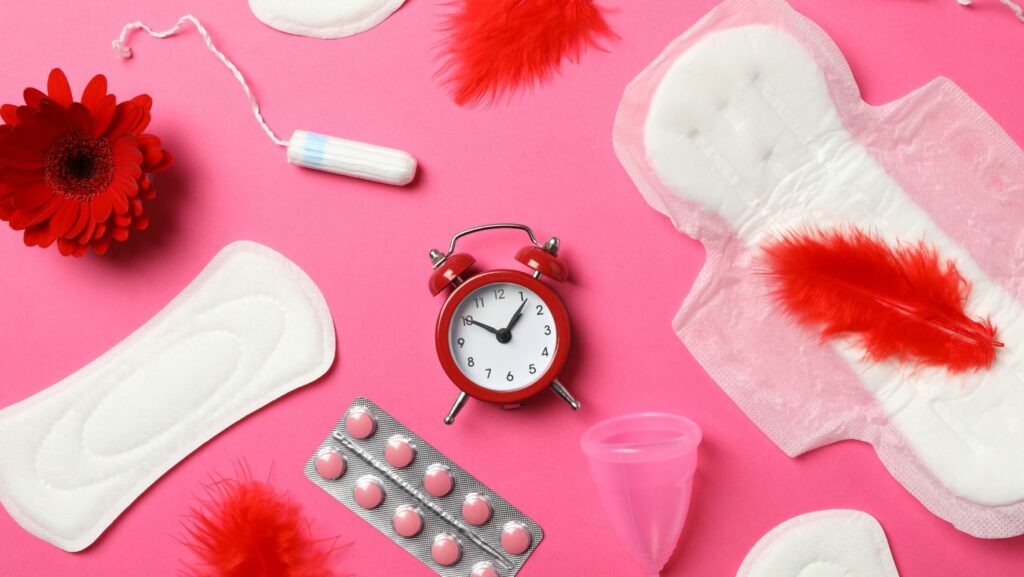Menstrual health is a critical aspect of women’s well-being, yet it’s often overlooked in public health discussions. The Menstrual Practice Needs Scale (MPNS) aims to fill this gap by providing a comprehensive tool to assess the needs and challenges women face during their menstrual cycles. This scale helps identify areas where interventions can improve menstrual hygiene management, ultimately enhancing quality of life. By understanding the diverse experiences and requirements of menstruating individuals, policymakers and healthcare providers can develop more targeted and effective solutions. The MPNS not only highlights the physical aspects but also considers the social and emotional dimensions, making it a holistic approach to menstrual health.
Menstrual Practice Needs Scale
 The Menstrual Practice Needs Scale (MPNS) evaluates critical factors affecting menstrual health. The scale comprises several indicators, which outline specific needs and challenges women face during menstruation. By analyzing these indicators, the MPNS provides a comprehensive understanding of menstrual hygiene management gaps. Using the MPNS allows for pinpointing specific areas needing intervention. The results guide policymakers and healthcare providers in creating targeted solutions to enhance menstrual hygiene management. For instance, if data reveals a lack of access to menstrual products, initiatives can focus on distributing these products to marginalized communities. Countries like India and Kenya have implemented projects based on MPNS results. In India, data showed the need for better sanitation facilities in schools, prompting the government to construct new toilets. In Kenya, findings highlighted the importance of menstrual health education, leading to nationwide awareness campaigns. Addressing issues identified by the MPNS can significantly improve the quality of life for menstruating individuals. Enhanced menstrual hygiene management reduces the risk of infections, increases school attendance, and boosts overall mental well-being. The MPNS thus serves as a crucial instrument for understanding and addressing menstrual health needs holistically.
The Menstrual Practice Needs Scale (MPNS) evaluates critical factors affecting menstrual health. The scale comprises several indicators, which outline specific needs and challenges women face during menstruation. By analyzing these indicators, the MPNS provides a comprehensive understanding of menstrual hygiene management gaps. Using the MPNS allows for pinpointing specific areas needing intervention. The results guide policymakers and healthcare providers in creating targeted solutions to enhance menstrual hygiene management. For instance, if data reveals a lack of access to menstrual products, initiatives can focus on distributing these products to marginalized communities. Countries like India and Kenya have implemented projects based on MPNS results. In India, data showed the need for better sanitation facilities in schools, prompting the government to construct new toilets. In Kenya, findings highlighted the importance of menstrual health education, leading to nationwide awareness campaigns. Addressing issues identified by the MPNS can significantly improve the quality of life for menstruating individuals. Enhanced menstrual hygiene management reduces the risk of infections, increases school attendance, and boosts overall mental well-being. The MPNS thus serves as a crucial instrument for understanding and addressing menstrual health needs holistically.
Key Components of the Menstrual Practice Needs Scale
The Menstrual Practice Needs Scale (MPNS) addresses various aspects of menstrual health, ensuring a comprehensive approach to improving women’s well-being. Physical needs encompass access to menstrual products, sanitation facilities, and clean water. The MPNS evaluates the availability and affordability of products like sanitary pads, tampons, and menstrual cups. For instance, in regions where products are scarce or expensive, individuals may face significant challenges in maintaining hygiene. Sanitation facilities are also crucial. The MPNS assesses whether private and hygienic facilities are available at home, work, and school settings. If facilities are inadequate or lack proper cleanliness, it can affect both physical health and attendance rates, particularly in educational institutions. Emotional needs focus on the psychological and social support required during menstruation. The MPNS considers factors such as stigma, social support networks, and menstrual education. Stigma related to menstruation can lead to shame and isolation, impacting mental health. Social support from family, friends, and peers plays a crucial role. The MPNS measures the presence of supportive environments where menstruating individuals can openly discuss their needs without fear of judgment. Additionally, menstrual education empowers individuals by providing accurate information, reducing anxiety, and promoting better health practices.
improving women’s well-being. Physical needs encompass access to menstrual products, sanitation facilities, and clean water. The MPNS evaluates the availability and affordability of products like sanitary pads, tampons, and menstrual cups. For instance, in regions where products are scarce or expensive, individuals may face significant challenges in maintaining hygiene. Sanitation facilities are also crucial. The MPNS assesses whether private and hygienic facilities are available at home, work, and school settings. If facilities are inadequate or lack proper cleanliness, it can affect both physical health and attendance rates, particularly in educational institutions. Emotional needs focus on the psychological and social support required during menstruation. The MPNS considers factors such as stigma, social support networks, and menstrual education. Stigma related to menstruation can lead to shame and isolation, impacting mental health. Social support from family, friends, and peers plays a crucial role. The MPNS measures the presence of supportive environments where menstruating individuals can openly discuss their needs without fear of judgment. Additionally, menstrual education empowers individuals by providing accurate information, reducing anxiety, and promoting better health practices.
Benefits of Using the Menstrual Practice Needs Scale
 The Menstrual Practice Needs Scale (MPNS) offers a transformative approach to menstrual health management. By providing a detailed assessment of both physical and emotional needs, the MPNS ensures that interventions are comprehensive and effective. Policymakers and healthcare providers gain valuable insights to develop targeted solutions, enhancing access to menstrual products and improving sanitation facilities. This leads to increased school attendance for girls and reduced infection risks, significantly improving their quality of life. The MPNS also addresses the emotional aspects of menstruation, helping to reduce stigma and build stronger social support networks. Its holistic approach makes it a powerful tool for driving informed health interventions that promote overall well-being for menstruating individuals worldwide. By focusing on detailed, actionable indicators, it drives informed, effective health interventions. By focusing on both physical and social aspects of menstrual health, the MPNS ensures a holistic approach in improving the quality of life for menstruating individuals.
The Menstrual Practice Needs Scale (MPNS) offers a transformative approach to menstrual health management. By providing a detailed assessment of both physical and emotional needs, the MPNS ensures that interventions are comprehensive and effective. Policymakers and healthcare providers gain valuable insights to develop targeted solutions, enhancing access to menstrual products and improving sanitation facilities. This leads to increased school attendance for girls and reduced infection risks, significantly improving their quality of life. The MPNS also addresses the emotional aspects of menstruation, helping to reduce stigma and build stronger social support networks. Its holistic approach makes it a powerful tool for driving informed health interventions that promote overall well-being for menstruating individuals worldwide. By focusing on detailed, actionable indicators, it drives informed, effective health interventions. By focusing on both physical and social aspects of menstrual health, the MPNS ensures a holistic approach in improving the quality of life for menstruating individuals.

